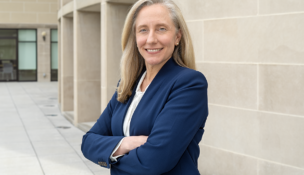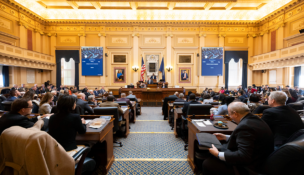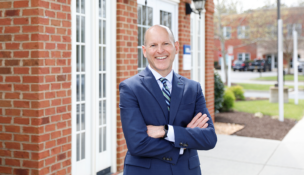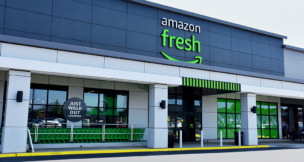Manna from heaven
Angel investors take bigger role in funding startups
Manna from heaven
Angel investors take bigger role in funding startups
In 2011 wealthy Richmond civic leaders Jim Ukrop, Bob Mooney and Ted Chandler launched an angel investment group, New Richmond Ventures, with $10 million to encourage promising startups to locate and grow in the Richmond region.
Four years later, the group, now rebranded as NRV, has invested more than $35 million in startup companies in the Richmond area (and one in Charlottesville) and has attracted about $56 million in outside investments. (One of its star investments, Richmond-based electric car charger manufacturer Evatran, now is seeking capital in China with NRV’s help.) And NRV itself is making corporate changes to more closely resemble a venture capital fund rather than a partnership of angel investors. As part of the change, it also will widen its investment focus to startups statewide.
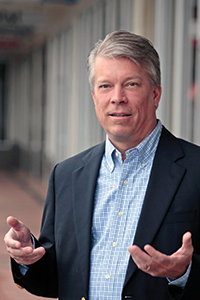 “We’re working hard, pouring more capital into Virginia because we see so many good deals,” says NRV Managing Director Scott Tolleson. “The market has matured. … Five years ago, certainly 10 years ago, there wasn’t a whole lot of deal activity [in Virginia], and now there’s a lot. I think it really started with the universities starting their entrepreneurship programs and … [entrepreneurship] is just becoming more of our culture.”
“We’re working hard, pouring more capital into Virginia because we see so many good deals,” says NRV Managing Director Scott Tolleson. “The market has matured. … Five years ago, certainly 10 years ago, there wasn’t a whole lot of deal activity [in Virginia], and now there’s a lot. I think it really started with the universities starting their entrepreneurship programs and … [entrepreneurship] is just becoming more of our culture.”
While the national media has obsessed over unicorns and billion-dollar valuations such as Uber and Airbnb, Virginia’s venture capital landscape has been quietly evolving in significant ways with the rise of regionally focused and civic-minded angel investor groups such as NRV, 757 Angels in Hampton Roads and CAV Angels in Charlottesville. Some of these groups are now providing critical early-stage capital to startups. That type of investment once was the purview of larger, institutional venture capital firms funded by clients such as pension funds.
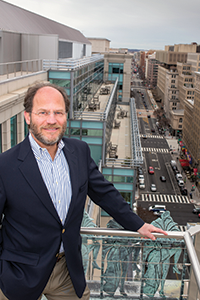 “The big story [in venture capital] is what’s called the democratization of venture capital — the explosive growth of incubators and accelerators and early-stage funds,” says Thomas R. Salley with Washington, D.C.-based Cooley LLP, one of the nation’s top law firms specializing in venture capital and entrepreneurial companies. Its clients include NRV.
“The big story [in venture capital] is what’s called the democratization of venture capital — the explosive growth of incubators and accelerators and early-stage funds,” says Thomas R. Salley with Washington, D.C.-based Cooley LLP, one of the nation’s top law firms specializing in venture capital and entrepreneurial companies. Its clients include NRV.
“There are lots of successful investors and entrepreneurs who are banding together to start funds,” he continues. “There’s an explosion of early-stage investor money of a non-institutional variety, and you see that in the plethora of angel investment clubs and founders’ clubs … That’s good for the more traditional venture funds because those angel groups are like a farm team identifying prospects and bringing them up.”
An expanding base of angel investors creates a stronger economic climate, Salley adds. Venture-backed companies hire more employees and as their companies grow, they bring more cash into the local economy. “Frequently the successful entrepreneurs come back and [start new businesses] … or they become angel investors themselves. It creates a virtuous circle.”
Angel groups, he explains, are very loosely organized and aren’t formally incorporated as limited partnerships or LLCs: “They’re usually a collection of like-minded people who want to see young businesses grow.”
‘Full-contact investing’
On the other hand, institutional venture capital firms have detailed partnership agreements that spell out expectations over the lifespan of the fund, usually 10 years. VC firms are run by professional managers, and their investment capital comes from their clients, which typically include corporate retirement funds, pension funds and high net-worth individuals.
While venture capital groups inject more money into growing companies, independent investor groups account for a much higher number of deals. Nationally, institutional venture capital funds invested $49.5 billion in companies in 2014, compared with $24.1 billion invested by the angel market, according to Jeffrey Sohl, professor and director of the Center for Venture Research at the University of New Hampshire. Angels tend to invest about $350,000 per deal on average, compared with $8 million to $9 million by venture firms.
Sohl notes, however, venture capital firms make about 4,000 deals per year compared with as many as 70,000 by the angels. They far outnumber venture capital firms and provide the lion’s share of startup capital for businesses as opposed to the latter-stage investments made by venture capital firms.
The majority of the time, Sohl says, angel investing “is full-contact investing. This isn’t passive stuff. You need to be close by to work with the companies, to go to the board meetings.”
Angel groups across the nation also have begun adopting institutional venture capital fund practices similar to the Silicon Valley-based startup fund Y Combinator, says Salley, the Cooley attorney.
Like NRV, these angel groups are growing to the point that they’re morphing into something more akin to traditional venture capital funds, says Sohl. He describes them as “boutique venture capital firms. … They have an executive director … [but] instead of the money coming from pension funds and endowments, it’s coming from rich individuals.”
Bigger deals
Meanwhile in Northern Virginia and the Washington, D.C., area, where the majority of Virginia’s venture capital resides, there are far fewer large institutional venture capital firms than in the tech-boom days of the late 1990s. The survivors, however, are making bigger deals than ever, as evidenced by the recent activity of top regional players such as Alexandria-based Columbia Capital, Washington, D.C.-based Revolution LLC and New Enterprise Associates (NEA) of Chevy Chase, Md.
The world’s largest venture capital firm, NEA, founded in 1977, manages more than $18 billion in assets across 15 funds. In Virginia, NEA invested $136 million in McLean-based Cvent, an online event management firm, in 2011. And last December NEA co-invested $16.5 million in Charlottesville-based PsiKick, which makes self-powering wireless sensors for “Internet of Things” applications. (Charlottesville was recognized by the National Venture Capital Association as the fastest-growing region in Virginia for venture capital dollars last year, largely based on the PsiKick investment.)
Founded in 1989 by Mark Warner, now Virginia’s senior U.S. senator, Columbia Capital manages $3 billion in capital. Revolution LLC is led by Steve Case, the co-founder and former CEO of AOL Inc. A private venture capital investment fund with more than $2 billion in assets under management, it has invested in companies such as Washington, D.C.-based LivingSocial, Boston-based Zipcar and Fairfax-based CustomInk.
“At one point there were over 100 venture funds in Northern Virginia in the late ’90s. Now if you look at the truly active ones, there are probably under 10,” says Bobby Ocampo, a partner with Revolution. The mature, high-dollar venture capital funds have performed well over the long haul, but many of the midsize firms have gone by the wayside, particularly after the 2008 recession.
“I think we’re starting to see significant stratification in the venture industry,” observes Ocampo. “The top-tier venture firms are raising larger and larger funds, and new upstarts are coming into the market with smaller funds and differentiated investment models. I think more money will be available to startups that are clear winners with real businesses and startups that fit into the strategies of new upstart funds (geographic, sector focus, etc.).
“It also helps that the cost of starting a startup has drastically decreased in the last couple decades,” adds Ocampo, “which bodes well for entrepreneurs looking to start their companies, especially in regions outside of Silicon Valley, which is now part of Revolution’s investment thesis.”
Filling the void
Typically, startup companies first raise money from friends and family and then get a small investment, around $50,000 to $100,000, from an individual angel investor. Then companies begin to raise funding in formal venture capital rounds, beginning with what is known as the Series A (or first institutional) round.
Whereas in past years institutional venture capital firms almost exclusively funded these Series A seed rounds, which usually raise from $2 million to $15 million, angel groups such as NRV are starting to take on more of this responsibility now.
“A lot of funding sources are filling the void,” says Carl Grant III, executive vice president of business development in Cooley’s Reston office. “The angel community is much more vibrant than it was [in the 1990s]. There were a handful of angels, and they weren’t organized in any real meaningful way. Now there are real solid angel groups coming together who are putting meaningful amounts of money into companies.”
Revolution’s Ocampo notes that it has more than $1 billion under management, so to make a profit, Revolution has to make larger investments in less risky, more stable companies. “When you look at it, a $1 million investment doesn’t move the needle. When you have to write a bigger check, it tends to be [investing in] companies that are more mature that know what to do with that money.”
In comparing Virginia’s venture capital industry with the rest of the U.S., “the good news is we’re on the map, but the bad news is the D.C. region makes up about 5 percent of the VC dollars,” says John Backus, co-founder and managing partner of Reston-based NAV.VC, a venture capital fund that makes early-stage investments in technology businesses. “Five percent is tiny compared to the population of our region and the power base of being the nation’s capital. We should aspire to have more than our fair share and not just our fair share. We’re in the top 10, but we’re way behind Silicon Valley … New York, Southern California … and Boston.”
Virginia’s venture capital industry comes in around sixth to eighth in the nation based on total venture capital invested, depending on the study, says Backus, who also serves as a board member and secretary of the National Venture Capital Association.
As far as startups and investment opportunities go, however, Virginia “is one of the more robust non-Silicon Valley markets in the country,” Ocampo says.
757 Angels

Unlike NRV or traditional venture capital firms, 757 Angels operates like a club and doesn’t provide formal mentoring or operational support. The group’s executive director and board of directors vet applicants through a “Shark Tank”-like process, winnowing the pool to a group of local firms that will then make their pitches before a dinner meeting of the group’s 100 members. Interested members fill out cards and make their investments directly with the companies. To date, 43 members have invested a total of $2.2 million in four companies. They’ve also helped bring in an additional $1.1 million in outside investments.
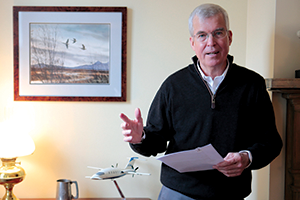
“We may be based in Virginia,” Murray says, “but it is our job on behalf of our investors to find the best deals … regardless of where they are.” In addition to backing companies in Virginia and on the East Coast, Court Square Ventures has invested in companies across the nation, including Boston, New York and Seattle.
Murray allows, however, that his firm does have a “bias toward the mid-Atlantic region because it’s easier to oversee the investments, and that is an important aspect of how well you manage your capital.”
And that bias is even more evident in angels: More than 90 percent of angel investments are made within a half-day of travel time from the angel investor’s primary residence, says the University of New Hampshire’s Sohl.
Close to home
When NRV is looking to invest in a company, “we’re thinking about our ability to help run the company on a personal level. The ones we tend to invest in tend to be close to home. We like to spend an awful lot of time on our portfolio, helping them with everything we can,” explains NRV’s Tolleson. “We are the kind of guys who would take a business and grow it.”
This approach is relatively new to East Coast investors, who in the past tended to treat capital investments more like stock purchases, he says. “It takes an awful lot of the risk out of our investment that we do this level of operational support for our investments. When I started my first company, my first investor handed me a $2 million check, and I didn’t see him for three months until the first board meeting, and I thought that was pretty scary. NRV is almost like a graduate accelerator program.”
PsiKick CEO Brendan Richardson, a U.Va. grad who spent 12 years working in the venture capital business on the West Coast before returning to Charlottesville, already had excellent contacts in the VC world. PsiKick had significant angel investments before landing its $16.5 million investment deal from NEA last year. But for startups without his connections, regional angel investor groups can be a great solution, he says: “If you’re not well-networked, or you don’t travel in those circles, then the angel groups are a really effective starting point to at least go talk to them and find out what they would go look for to select a company to present to their group.”
And “it’s no harder to get angel investments into startups in Virginia than anywhere else. In fact, it’s relatively easier than most places,” says Richardson, who also worked for Investure LLC, a Charlottesville-based investment management firm for endowments and foundations. Charlottesville in particular, he notes, has a wealthy base of angel investors as well as a variety of excellent investment opportunities provided by the University of Virginia’s research projects.
Overall, despite the possibility of a few minor bumps, the venture capital market appears fairly stable for the immediate future, say the University of New Hampshire’s Sohl and others. However, more could be done to strengthen Virginia’s presence in the national VC market. For Murray, that means a more concentrated focus on entrepreneurship and commercializing research and spinning off more businesses from state universities such as Virginia Tech and the University of Virginia.
After all, at its heart, “the venture capital market is not about venture capital firms,” observes NRV’s Tolleson. “It’s about entrepreneurs and the quality of those businesses. And we see more and better stuff every year.”
!


